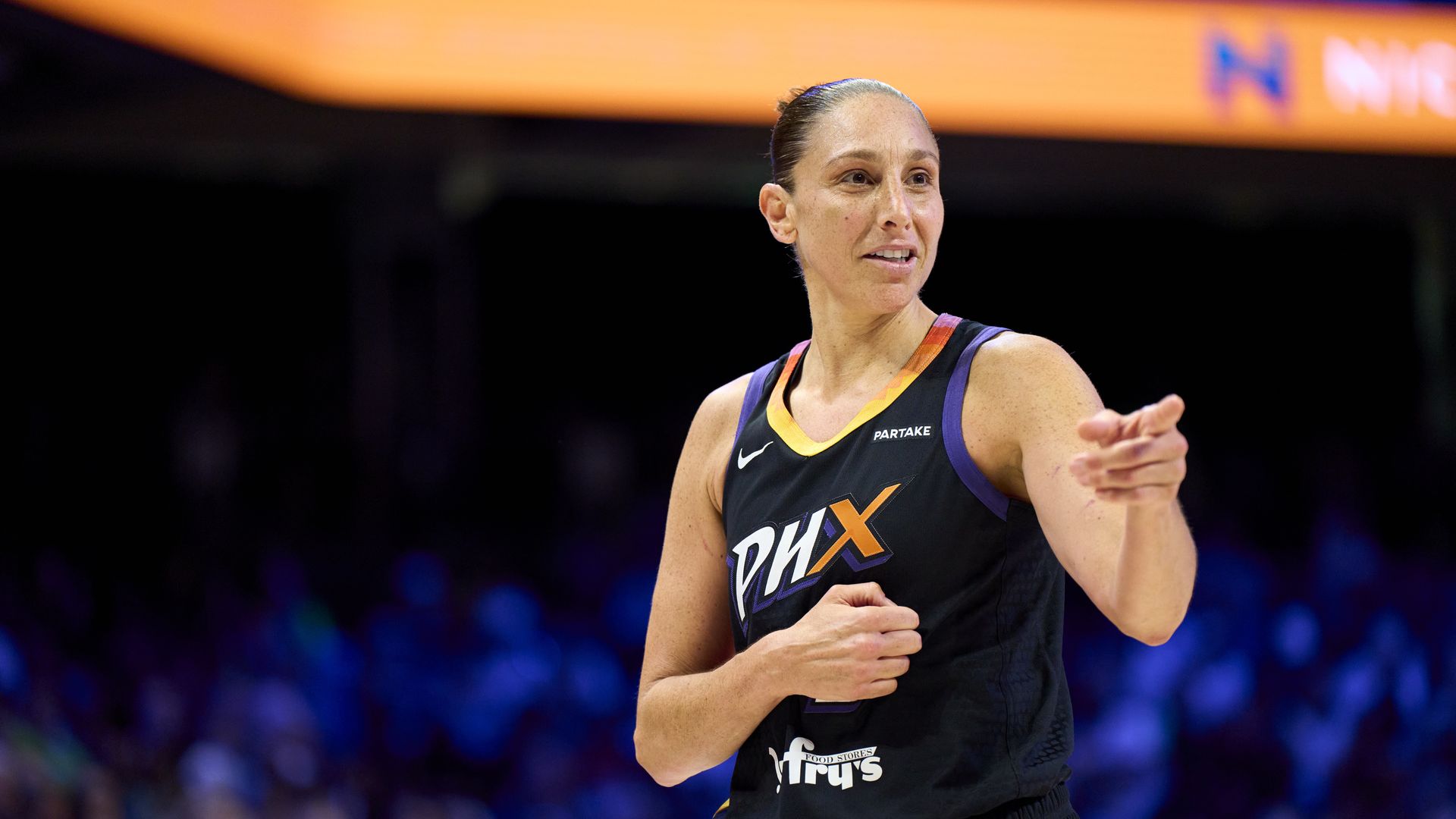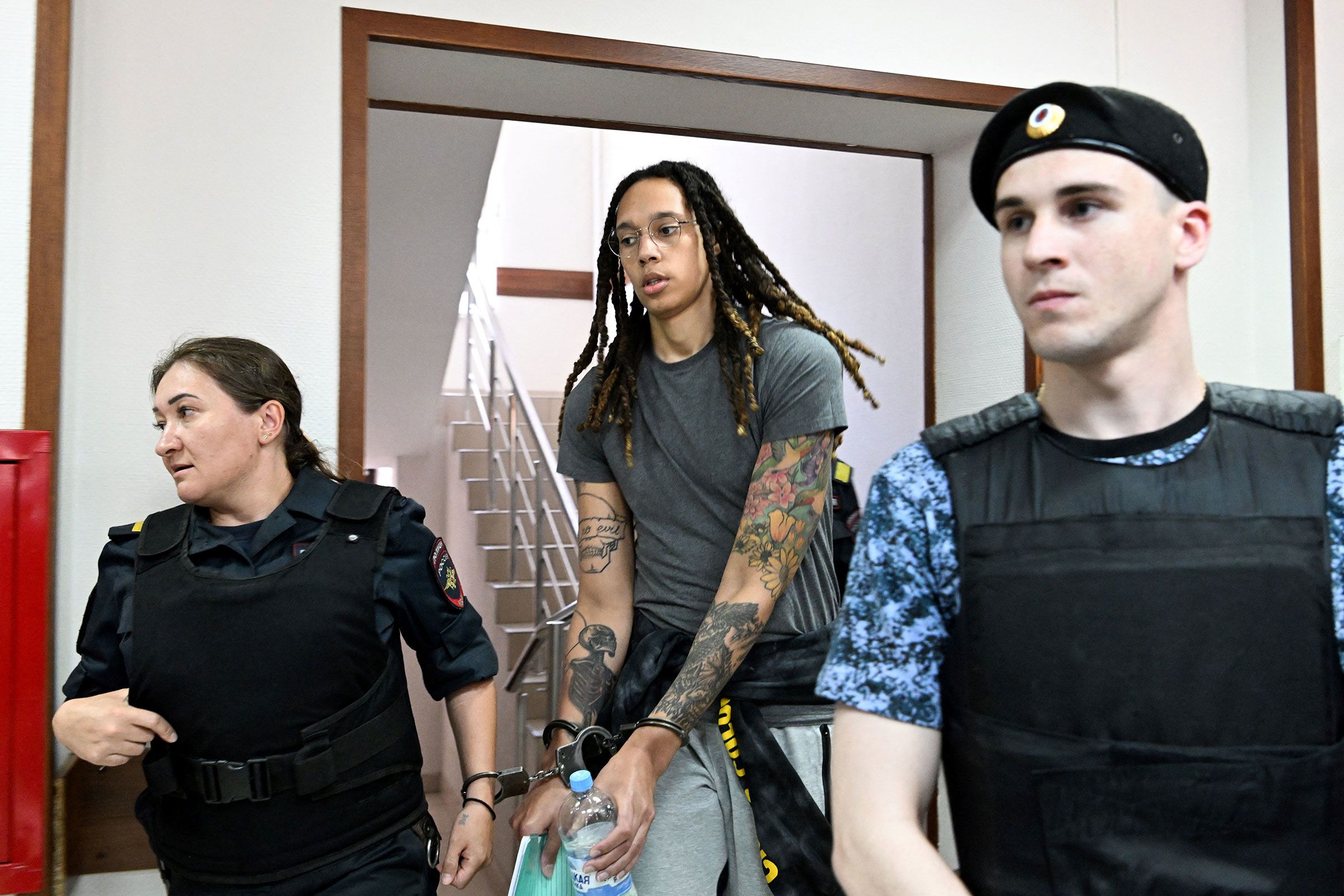Brittney Griner’s return to the 2024 Paris Olympics has reignited discussions about her activism, particularly her decision to kneel during the national anthem as a form of protest against racial injustice. Griner, who endured nearly ten months of imprisonment in Russia, is now back with the U.S. women’s basketball team, aiming for another gold medal. However, her decision to continue kneeling has sparked controversy, with significant figures in sports expressing concerns.

Diana Taurasi, a teammate and friend of Griner, has been a supportive figure throughout this ordeal. Yet, recent reports suggest that Taurasi has taken a more reflective stance on Griner’s continued protest. Taurasi reportedly emphasized the importance of unity and focus during the Olympics, a time when athletes represent their country on a global stage. She allegedly warned Griner that her decision to kneel could have significant repercussions, including the possibility that it might lead to her being perceived as insincere or even deceitful if her actions contradict statements made during selection processes.
The controversy surrounding Griner’s protest comes at a time when the International Olympic Committee (IOC) has been firm on maintaining neutrality during the games. The IOC’s regulations have long prohibited political gestures, and kneeling during the anthem falls under this category. Taurasi’s caution to Griner, suggesting that continuing to kneel could lead to her actions not being recognized during medal ceremonies, highlights the tension between personal beliefs and Olympic regulations.

Griner’s protest is not new, as she has been vocal about social justice issues throughout her career. However, her recent imprisonment and the international attention it garnered have added layers of complexity to her activism. For many, Griner’s decision to kneel is a powerful statement against racial injustice, one that resonates with broader movements across the United States. For others, especially within the Olympic framework, it raises questions about the appropriate time and place for such expressions of dissent.
Taurasi’s perspective reflects a broader concern within the sports community about maintaining the integrity and focus of the team. While she supports Griner’s right to protest, she also acknowledges the challenges that come with balancing personal beliefs with the responsibilities of representing one’s country on the world stage. This dilemma is not unique to Griner; many athletes have faced similar crossroads where their activism intersects with their professional obligations.
The debate over kneeling during the national anthem is emblematic of larger societal divisions, particularly in the United States. Supporters argue that it is a legitimate form of protest against systemic racism and police brutality. Critics, however, view it as a disrespectful act, especially in the context of international competitions where athletes are seen as ambassadors of their countries.
Griner’s situation is further complicated by her recent experiences in Russia, where she was detained under harsh conditions. Her return to the U.S. and subsequent inclusion in the Olympic team was seen by many as a triumph of American diplomacy and a victory for human rights. This context has made her actions at the Olympics even more scrutinized, as she navigates her dual roles as an athlete and an activist.
Taurasi’s cautionary advice to Griner can be seen as a call for reflection, urging her to consider the broader implications of her protest within the Olympic framework. The potential consequences, including the possibility of not having her achievements recognized, are significant. Yet, for Griner, the act of kneeling remains a deeply personal and powerful statement, one that she may feel compelled to continue despite the risks.
As the Olympics progress, it remains to be seen how Griner’s protest will be received by both the public and the IOC. The situation highlights the ongoing tension between individual expression and collective representation, a theme that has become increasingly relevant in today’s politically charged environment. Griner’s actions, and the responses they elicit, will undoubtedly shape the narrative of these Olympics and beyond.

In conclusion, the issue of kneeling during the national anthem at the Olympics is a complex and multifaceted one. It involves not just the personal beliefs of athletes like Brittney Griner, but also the broader expectations of sportsmanship, patriotism, and international diplomacy. Diana Taurasi’s reflective stance underscores the delicate balance that athletes must strike between their roles as public figures and their rights as individuals. Whether Griner continues to kneel or not, her actions will continue to spark debate and reflect the evolving nature of protest in sports.
News
Discover the Hidden Health Benefits of Common Mallow: Nature’s Nutritional Gem (an)
Discover the Hidden Health Benefits of Common Mallow: Nature’s Nutritional Gem Common mallow, also known as Malva sylvestris, is often overlooked and dismissed as a mere weed. However,…
Boost Your Energy Like an 18-Year-Old with This Powerful Lemon and Honey Remedy (an)
Boost Your Energy Like an 18-Year-Old with This Powerful Lemon and Honey Remedy Introduction: Reclaim Your Youthful Energy Do you often find yourself wishing you could feel…
13 Health Benefits of Phyllanthus Niruri (Stonebreaker) (an)
Phyllanthus niruri, commonly known as Stonebreaker, Chanca Piedra, is a powerful medicinal herb widely used in traditional medicine. This plant is well-known for its liver-protective properties and its…
Yarrow: A Timeless Herbal Ally with Amazing Health Benefits (an)
Yarrow (Achillea millefolium), a perennial herb, has been revered for centuries as a medicinal plant with a wide array of health benefits. Its use dates back to…
Just 1 Leaf of This Plant Is Worth a Gold Mine – Euphorbia Hirta (Did You Know That?) (an)
Euphorbia hirta, commonly known as asthma weed or snake weed, may appear as an ordinary wild plant, but it is a true gold mine when it comes to its…
End of content
No more pages to load











